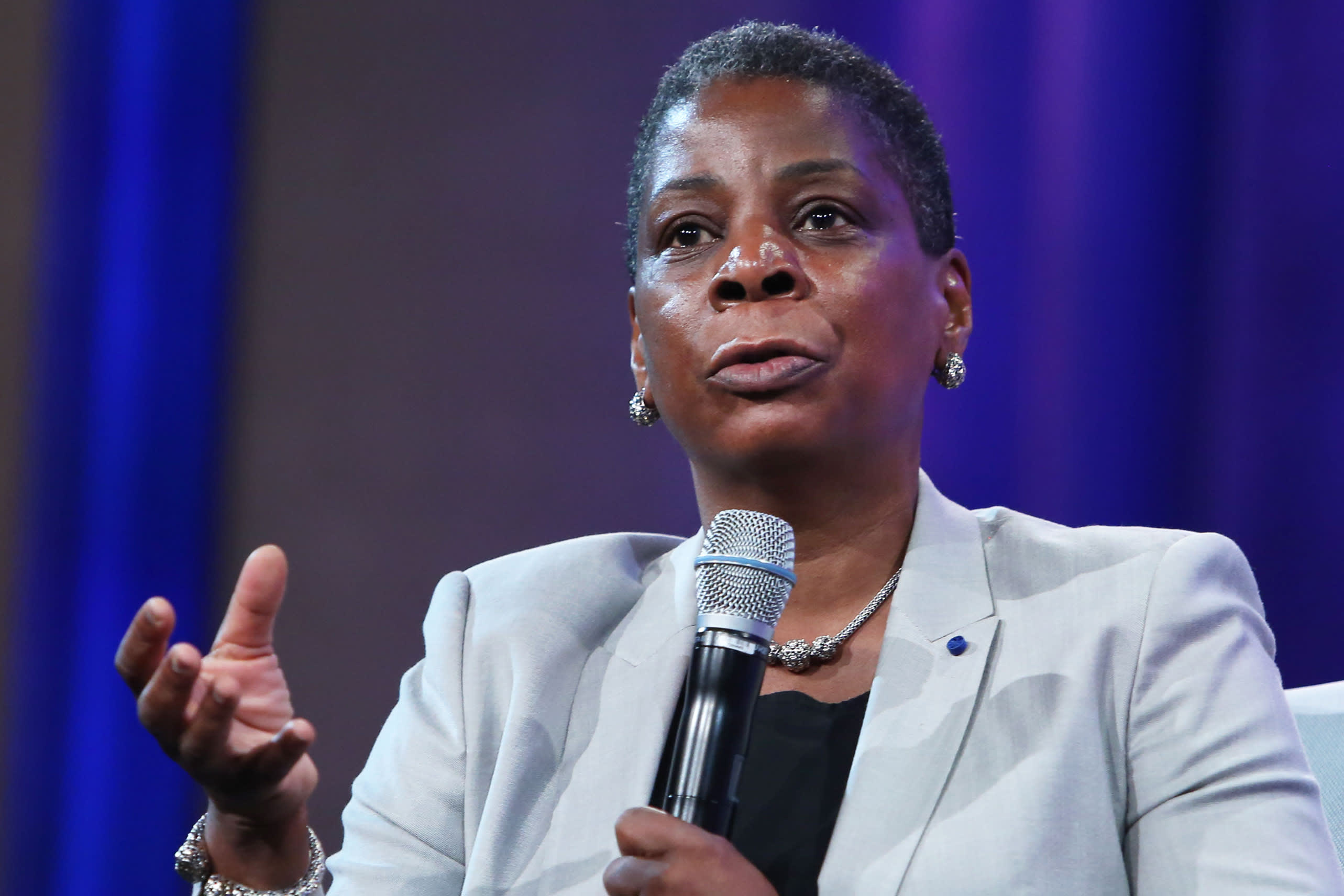
Ursula Burns is no stranger to corporate leadership.
The former CEO of Xerox and the first Black female chief executive of a Fortune 500 company now sits on the boards of private and public corporations including Uber, Nestle and Exxon Mobil.
She told CNBC’s David Faber she has spoken with countless business leaders who sought her guidance on diversifying their businesses In the wake of last year’s social unrest.
Many of the calls revealed that these executives turned to Burns because they had no Black directors in their organizations to consult on systemic racism or diversity and inclusion. “If you have to call outside to get perspective on what’s happening inside your company, that is a problem,” Burns said.
There’s only one Black female chief executive leading a Fortune 500 company: Newly installed Walgreens Boots Alliance CEO Rosalind Brewer. Thasunda Brown Duckett, who steps into her role at TIAA on May 1, will make it two. When looking at the data on where corporate America stands in terms of Black leadership, Burns said in a sit-down for the “Evolve: The Faber Interview” series that it’s embarrassing.
You can no longer have a reasonable debate or conversation about not being inclusive. … It’s mathematically wrong, and you will be singled out.
Ursula Burns
“You can no longer have a reasonable debate or conversation about not being inclusive,” she said, “It’s mathematically wrong, and you will be singled out.”
As a board member of three major corporations, Burns reflected on the last year navigating matters of race and inclusion as well as environmental initiatives. She said that while some U.S. companies are taking this time to engage and make their mark as a positive influence, European companies, like Swiss chocolatier Nestle, are having a harder time when it comes to finding their voices on social issues. She said foreign businesses are more likely to watch where U.S.-based businesses are most engaged and follow their lead.
Burns is finding, however, that companies around the world are pushing their businesses to align on matters of environmental protection. She said it’s better to be on the right side of the climate change debate for moral and financial reasons.
I think a lot of companies are seeing that they have to start skating where the puck is going.
Ursula Burns
“I think a lot of companies are seeing that they have to start skating where the puck is going,” she said. “You have to literally be a leader to actually be viable over the long term.”
Companies such as Exxon Mobil are following this notion of long-term sustainability with major changes in their business. Earlier this month, the oil giant announced it plans to add activist investor Jeff Ubben, a proponent of environmental, social and governance investing, to its board. Exxon also plans to invest in technologies to help support a lower carbon future.
Burns told Faber that sitting on Exxon’s board is the most interesting and most controversial of her roles. She said she’s pleased with the changes Exxon has been making in recent months and that it will continue to expand its efforts.
“This is definitely not window dressing,” she said. “Exxon Mobil doesn’t take a lot of things lightly.”
Burns remains optimistic because of what she has seen in corporate leadership this past year. She said she does not see the changes that have been made as a false start since the conversations of diversity as well as ESG issues have been mainstays industrywide for a significant period of time. “The intensity has changed very significantly,” she said, “We’re making this a movement.”




